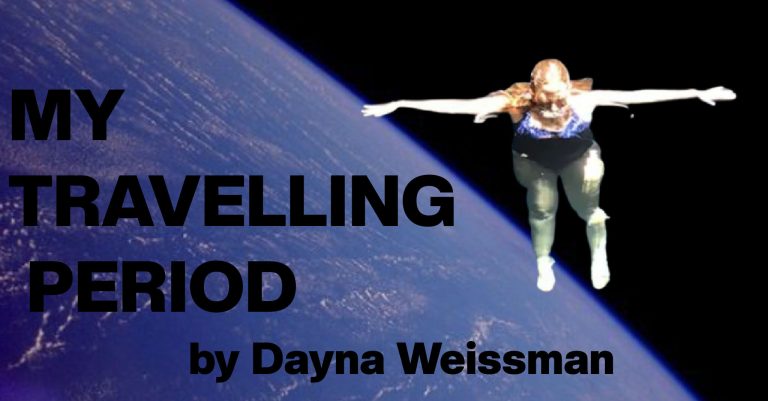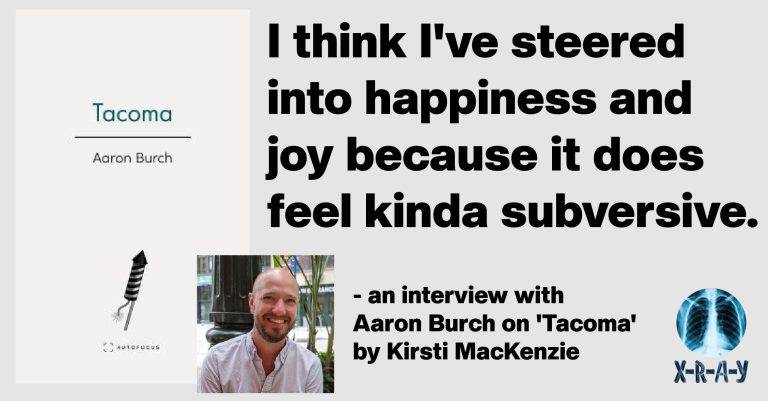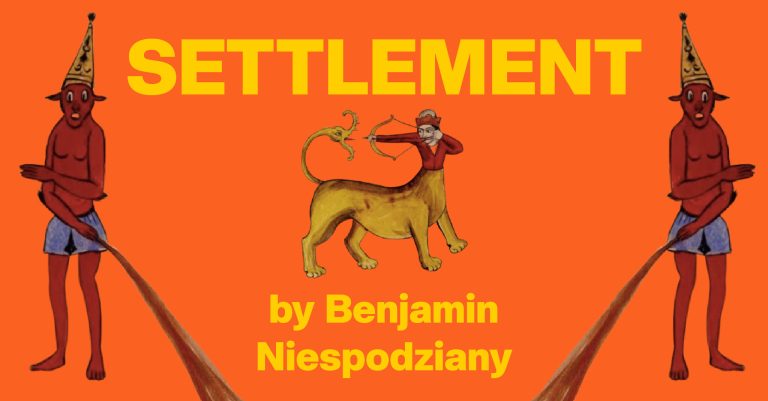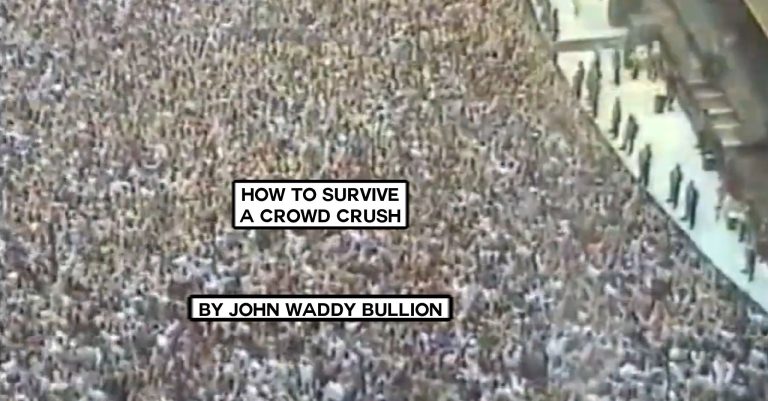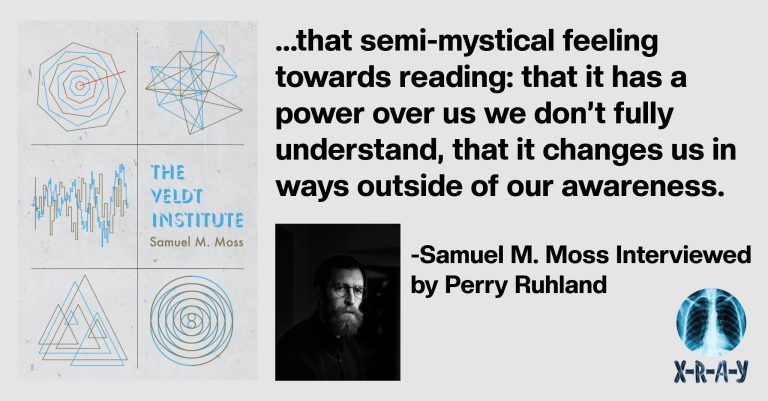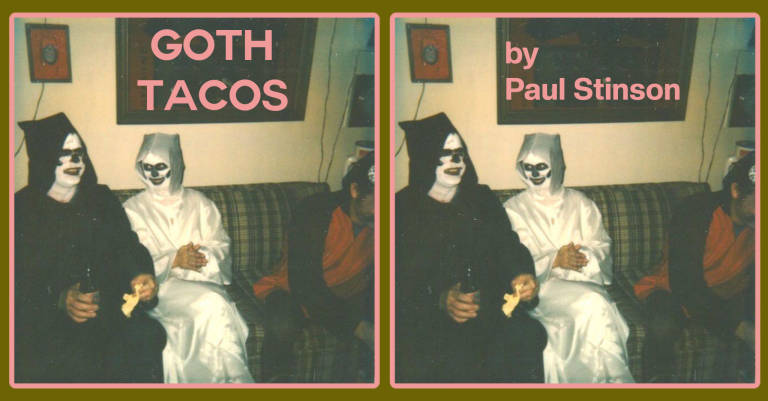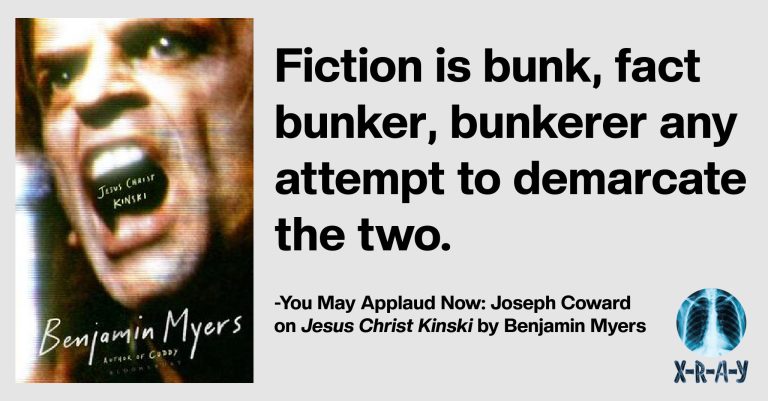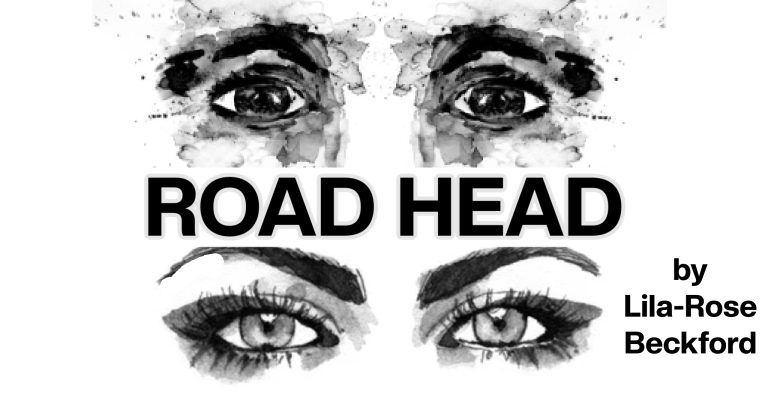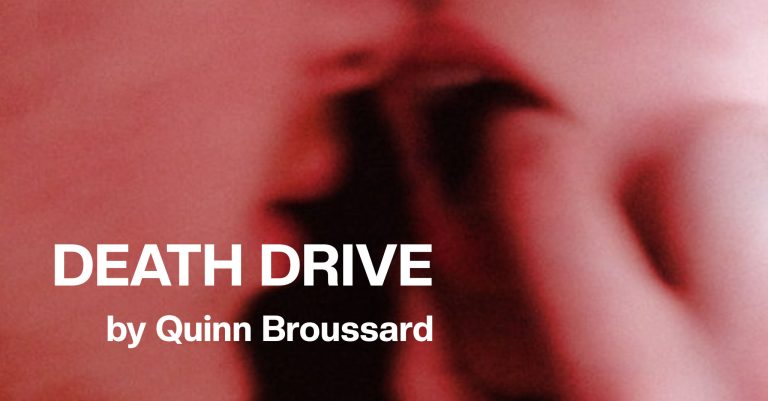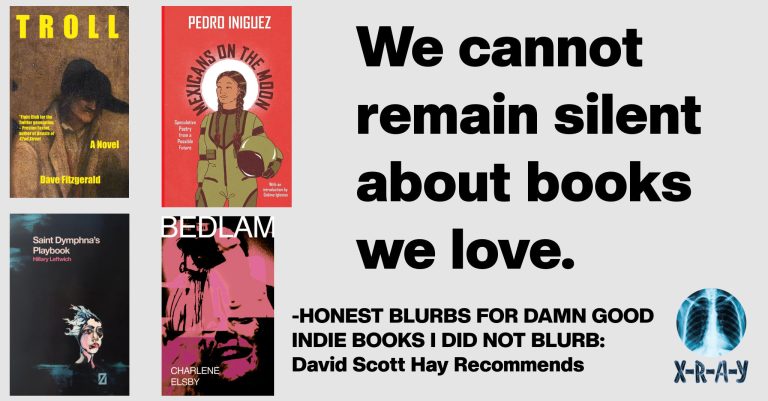
“HONEST BLURBS FOR DAMN GOOD INDIE BOOKS I DID NOT BLURB.” – David Scott Hay Recommends
I read. I write. Sadly, I’ve learned over the years that I am an awful reviewer. I can converse about books, but when I set out to write about them, the critique part of my brain devolves into grunts and hoots. Any intelligible attempt at an academic critique finds my original thoughts replaced by clichés and tropes. The same for my emails (all subject to endless drafts and restructuring). But not today, Satan. Today, I blurb. I can blurb. That I can do. Hence the style of this column. Warning, all books are praised. A few, more than you think

